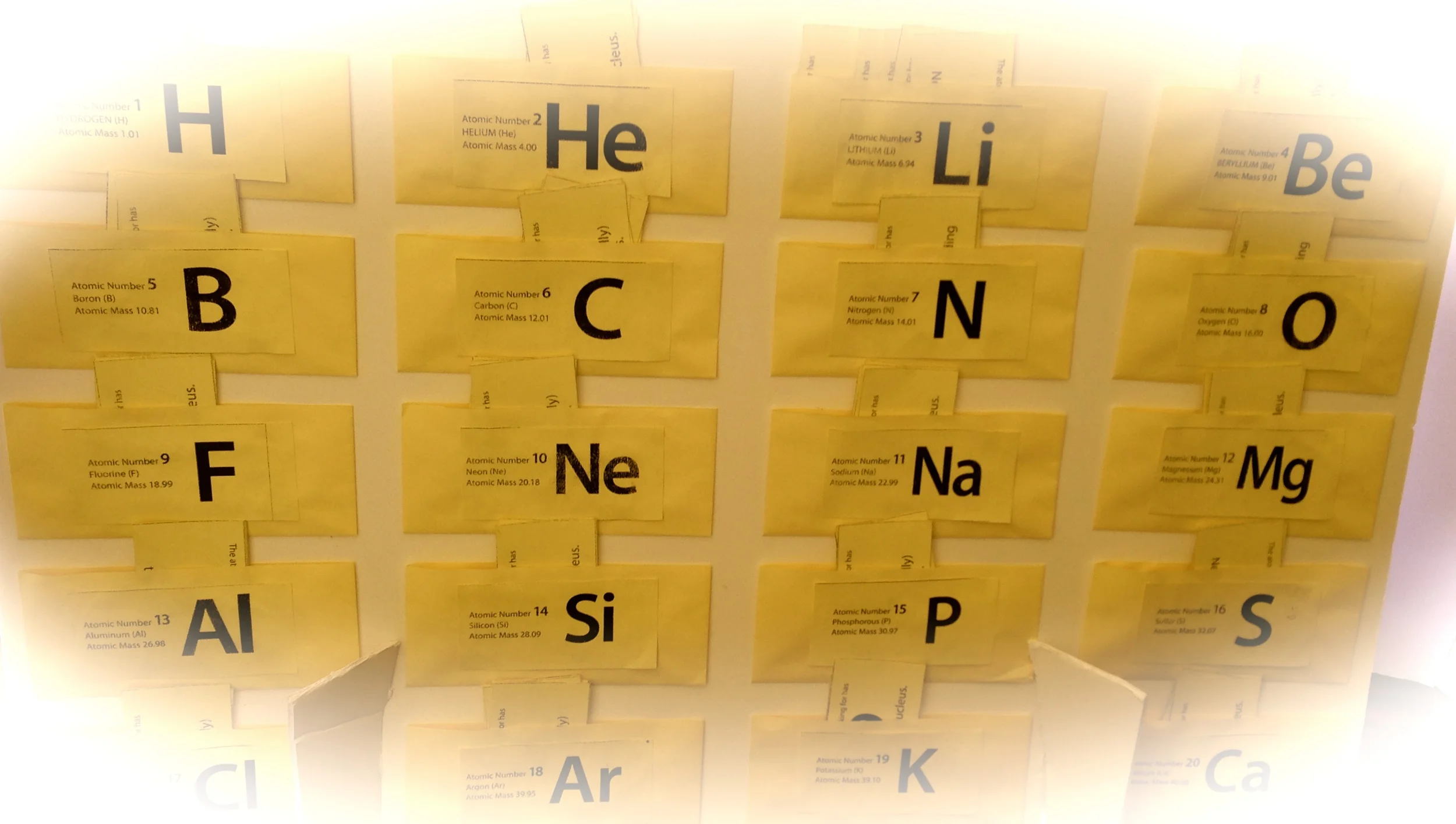Homework
All homework will be available on the WEB chemistry google classroom. Check your email for updates!
Instructor
Jennifer Castro
jcastro103@yahoo.com
Course MaterialS
Provided:
Chemistry text materials and laboratory activity sheets
Index cards
Composition book for note taking
INSTRUCTIONAL GOALS
Students will be introduced to the science of chemistry. They will be asked to look at the world around them at the atomic level and consider how atoms interact to form the world around us.
Labs
Much of the lab work will utilize everyday items to demonstrate fundamental principles of chemistry. Whenever possible, we will utilize professional laboratory equipment so the students will become comfortable and familiar in traditional laboratory environments. Safety is a priority and all students will be required to adhere to all safety guidelines for each lab including the use of goggles and aprons.
In Class
The student should be prepared for weekly instruction and note taking over reading assignments and laboratories. It is important that all students bring their books, assignments and a pen or pencil with them to class each week.
Homework
Reading material: The complete text for the year will be provided.. The text is divided into 6 chapters and students will be expected to read and take notes on the assigned portions before we begin covering it in class. Binders will be given out at the orientation meeting.
Activity Sheets: The Activity Sheets for each lab will be given out the week prior to the lab in order for the student to read ahead and come prepared for class.
Vocabulary Cards: Throughout the year, students will be creating vocabulary cards in order to master the language of chemistry. These cards will be a long term project throughout the year, and the students will be left with a nice collection at the end of their year for them to use and expand upon in future studies.
Testing and Quizzes
Weekly quizzes will be given over the week's assignment. Tests will be given over each chapter.
Additional Assignments
Other projects such as brief presentations, outside research, and in class challenges will be occasionally assigned in order to focus on additional methods of learning.
Grading Policies
Attendance and grades will be recorded but will not be the primary focus of the class. Assignments will be returned with a number correct out of number possible. Parents are welcome to request their student’s grades at any time. I will notify parents if students are not completing assignments, or if I am concerned with consistent below average grades.
SYLLABUS
Aug 9 Parent Meetings and Handing out of Supplies
Chapter 1: Matter - Solids, Liquids and Gases
Scientist to Know: Fahrenheit and Celsius
Aug. 16 Molecules and Motion, Introduction to Note Cards
Aug. 23 The Effects of Temperature on Liquids and Solids
Aug. 30 The Effects of Temperature on Gasses and
Ch. 1 Review / Ch. 2 Preview
Exam 1: Take Home Exam Chapter 1
Chapter 2: Changes of State
Scientist to Know: Kelvin
Sept. 6Heat, Temperature and Conduction
Sept. 13 Changing State Evaporation and Condensation
Sept. 20 Changing State Freezing and Melting
Sept. 27 Changing State Sublimation and Deposition
Chapter 2 Review / Chapter 3 Preview
Exam 2 Take Home Exam Chapter 2
Chapter 3: Density
Scientist to Know: Archimedes
Oct. 4 Density and Water Displacement Method.
Oct. 11 Fall Break
Oct. 18 Density of Water
Oct. 25 Sink and Float Solids and Liquids
Nov. 1 Temperature and Density
Chapter 3 Review / Chapter 4 Preview
Chapter 4:The Periodic Table
Scientist to Know: Dmitri Mendeleev
Nov. 8 In Class Exam Chapter 3
Protons, Neutrons and Electrons
Nov. 15 The Periodic Table
Nov. 22 Thanksgiving Break
Nov. 29 The Periodic Table and Energy Level Models
Element Presentations
Christmas Break
Chapter 4: Bonding
Jan. 10 Covalent Bonding
Jan. 17 Ionic Bonding
Jan. 24 Lewis Dot Diagrams.
Periodic Table Challenge
Chapter 4 Review/ Chapter 5 Preview
Chapter 5: The Water Molecule and Dissolving
Scientist to Know: Dissolve my Nobel Prize: Bohr, Von Laue, Frank
Jan. 31 Polarity and Surface Tension
Feb. 7 Water Dissolves Salt and Sugar
Feb. 14 Identifying an Unknown using dissolving
Feb. 21 Temperature Effects on Dissolving
Feb. 28 Liquids and Gasses Dissolving in Water
Mar. 7 Temperature Changes in Dissolving
Chapter 5 Review / Chapter 6 Preview
Take Home Exam Ch. 5
Mar. 14 Spring Break
Chapter 6: Chemical Change
Scientist to Know: Marie Curie
Mar. 21 Chemical Reaction and Controlling the Products
Mar. 28 Forming a Precipitate and Temperature Effects
April 4 Identifying an Unknown with chemical changes
April 11Energy Changes in Reactions and pH
April 18 Neutralizing Acids and Bases and Review
April 25 Chapter 6 Exam
May 2 Fun Day / Make Up Day
May 9 Snow Day or End of Year Party
